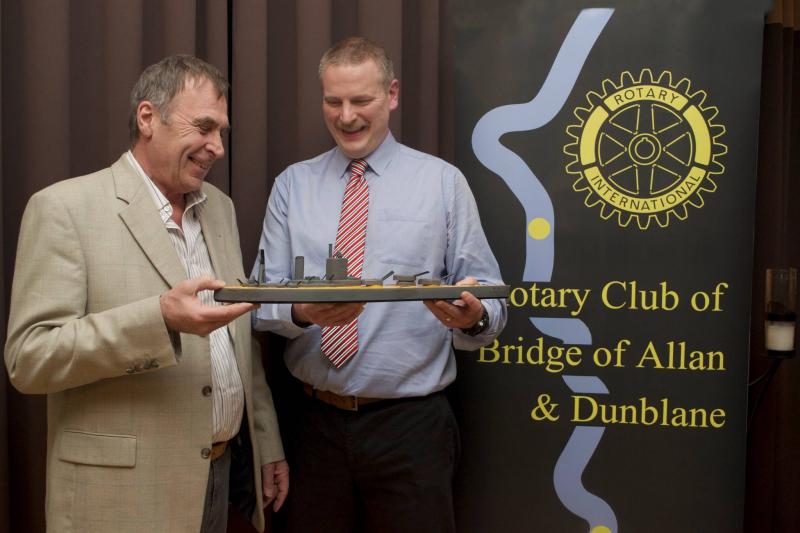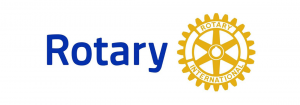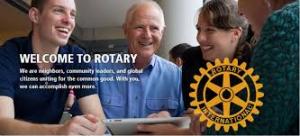Marine Engineering - Mark Campbell Roddis
Thu, Feb 11th 2016 at 6:00 pm - 8:30 pm
Regular weekly meeting

MARINE ENGINEERING
What factors need to be taken into account when a ship is being designed? How can cost be accurately assessed? What about the ship’s performance and levels of manning? These and other intriguing questions were addressed by Dr Mark Campbell Roddis, a Chartered Naval Architect. He was talking to the Bridge of Allan and Dunblane Rotary Club on Thursday 11 February about marine engineering.
Dr Campbell Roddis talked of his wide experience as a naval architect, including involvement in projects such Trident and the new aircraft carriers being built at Rosyth. In addition to these major naval projects, he had also worked on offshore projects including undersea tasks involving gas and oil pipelines.
Dr Campbell Roddis talked members through the complex, and often controversial, process of designing and building a ship, starting with the setting out of the initial requirements by those commissioning a ship. He then progressed to the work of the designers of the craft who take account of a myriad of issues, including sizing the ship, hull design, structural issues and propulsion systems. This initial design process leads to the involvement of a variety of expert skills that need to be involved to bring the project to a successful conclusion. The task of managing the project then falls to the project management group. This group initially has to resolve differing views on the specification, and seeks to reconcile the knotty issues involved in agreeing performance standards, fit-out and, inevitably, the all-important cost issues.
Each of these elements – and many others - require detailed consideration of the final role of the vessel and, almost inevitably, involve some degree of compromise to ensure that the final outcome remains as close as possible to the commissioner’s requirements and cost limits.
Reflecting on his own varied experience, Dr Roddis identified a number of issues where he believes there could be greater economies achieved. He cited examples of what he believed was over-specification of naval vessels and the implications of changes during construction, which had inevitably led to cost inflation, sometimes of a breath-taking level. The initial estimate of cost for the two aircraft carriers was £4.5 billion; this has now increased to some £9 billion. In a similar vein he suggested that some naval vessels may be over-manned.
Asked about the possibility of sourcing vessels from overseas shipyards, he suggested that the UK has to accept that for tankers and cruise ships, the market has moved to the Far East. For warships, the UK still has great expertise and this is also evident in the USA. There may well be scope for the two countries to work more closely together; there may also be a case for collaboration with continental designers and builders.
Speaker’s Host Allan Macpherson thanked Dr Roddis for a fascinating insight into an important industry, and for explaining a complex process so clearly. Members were very happy to endorse this opinion.




